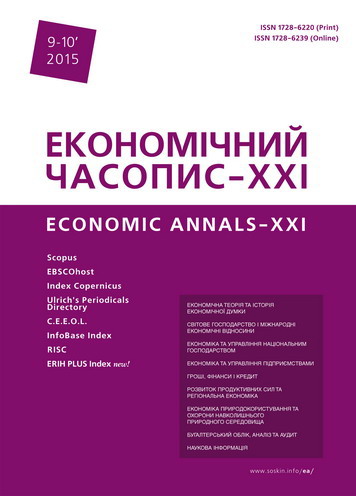Макроекономічний вплив споживання енергії у трансформаційних економіках
Macroeconomic effects of energy consumption in transforming economies
Author(s): Victor Shevchuk, Olga RybchynskaSubject(s): Economy, Environmental and Energy policy
Published by: Institute of Society Transformation
Keywords: Renewable Energy; Energy Efficiency; Energy Saving Technologies; Sustainable Development
Summary/Abstract: Introduction. Nowadays climate change has become one of the biggest environmental challenges, which may impose huge costs on society and economy if proper measures are not taken. As the efforts made by the United Nations Framework Convention on Climate Change (UNFCCC), the Kyoto Protocol and others proved to be insufficient initiatives to solve this problem, it is necessary to elaborate other measures to improve the situation, such as expanding the use of environmentally sustainable technologies, promoting energy efficiency improvements or energy saving policies. This article focuses on the macroeconomic effects of energy use for nine countries of Central and Eastern Europe and four countries of the former Soviet Union, thus highlighting directions for stimulating economic growth due to the development of renewable energy sources. The purpose of the article is to conduct an analysis of the current strategies for sustainable economic growth in accordance with the use of natural resources which can be considered one of the most important aspects of the traditional model of economic growth. Results. The regression results demonstrate that there is a positive correlation of GDP growth and fossil fuel consumption in six out of the nine countries in Central and Eastern Europe. Among the former Soviet Union countries, a strong link between economic growth and energy consumption is obtained for Ukraine and Russia (to a lesser extent). Instead, an increase in energy consumption is associated with lower rates of GDP growth in Belarus and Kazakhstan. The positive correlation between GDP growth and energy consumption, as obtained for the majority of countries, requires a further research on the underlying mechanisms behind this kind of relationship.
Journal: Економічний часопис - ХХІ
- Issue Year: 154/2015
- Issue No: 09+10
- Page Range: 9-14
- Page Count: 6
- Language: Ukrainian

